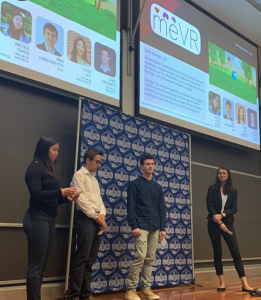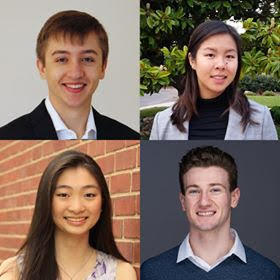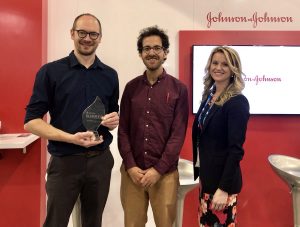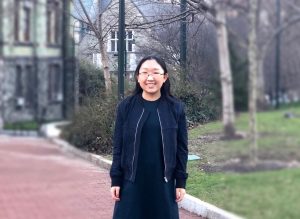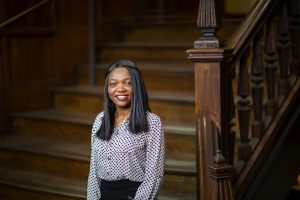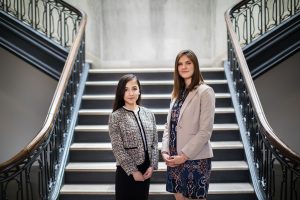Last spring, we congratulated Penn Bioengineering graduating BE senior Malika Shukurova (BSE ’19) and her co-founder Katherine Sizov (Biology ’19) on their President’s Innovation Prize for their start-up Strella Biotechnology. Katherine began the work for what became Strella as a sophomore in the Penn Bioengineering George H. Stephenson Foundation Educational Laboratory & Bio-MakerSpace. For more info on their company, check out the article and video below.
by Eric K. Brockmeier
On the second floor of the Pennovation Center, Strella Biotechnology is hard at work turning their student-led startup into a full-fledged company that’s ready to make a major impact in the agricultural sector.
May graduates Katherine Sizov and Malika Shukurova, respectively the CEO and head of R&D at Strella, share a 2019 President’s Innovation Prize, which includes $100,000 of financial support, a $50,000 living stipend for both awardees, and a year of dedicated co-working and lab space at the Pennovation Center. The alumnae and their company are now poised to take on the challenge of $1 trillion worth of food waste.
Strella’s biosensors are designed to give packers real-time data on how ripe their fruits are while being stored between harvesting and selling. Using bio-inspired sensors that measure the ethylene gas produced by fruits as they ripen, Strella successfully “hacked the fruit” to create their patent-pending biosensors. Now, only six months after graduation, Strella has six paying customers and is aiming for $100,000 in sales by the end of the season.
Beyond the work needed to deploy their first paid product, Strella also has a clear view of what needs to be done for future progress of the company. This means running experiments in the lab to refine their current sensors while conducting other experiments that will help the company be able to monitor other types of fresh foods. It’s a job that Shukurova says involves a lot of multitasking and requires an “all-hands” approach to problem solving.
“We set up experiments that run for several days, and during that period we work on different tasks. I prepare for the next set of experiments, Jacob [Jordan] and Katherine travel to our customers to deploy sensors, and Zuyang [Liu]]works on IoT [Internet of Things]. At the end of the day we all come together to discuss results and future plans,” says Shukurova about their company’s work flow.
Continue reading at Penn Today.

